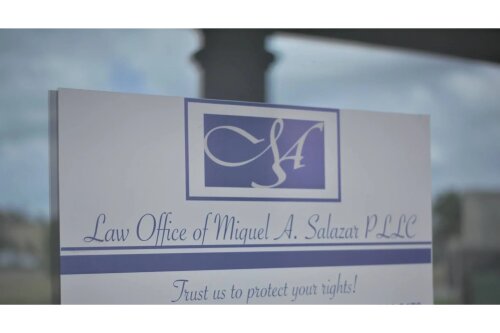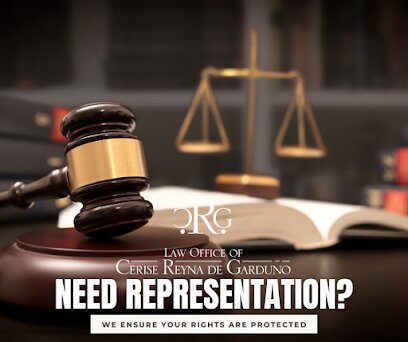Best Father's Rights Lawyers in Indiana
Share your needs with us, get contacted by law firms.
Free. Takes 2 min.
Free Guide to Hiring a Family Lawyer
Or refine your search by selecting a city:
List of the best lawyers in Indiana, United States
About Father's Rights Law in Indiana, United States
Father's Rights in Indiana focus on ensuring that fathers receive fair and equal treatment in matters of child custody, visitation, and child support. Indiana recognizes the importance of both parents in a child’s life and seeks to protect the rights of fathers regardless of marital status. Whether parents are going through a divorce, separation, or establishing paternity, Indiana law aims to provide fathers with the opportunity to establish and maintain strong parental bonds with their children.
Why You May Need a Lawyer
Many fathers face complex legal challenges when asserting their rights. Some common situations where legal help is essential include:
- Establishing or disputing paternity
- Negotiating child custody or parenting time schedules
- Seeking modifications to existing custody or support orders
- Responding to alleged parental misconduct or abuse accusations
- Addressing interstate custody issues
- Enforcing visitation or custody rights
- Understanding child support obligations and rights
Legal representation ensures that your interests are protected, helps navigate complex legal procedures, and increases the likelihood of achieving a favorable outcome.
Local Laws Overview
Indiana's laws relating to Father's Rights are grounded in the principle that children benefit from strong relationships with both parents. Key aspects include:
- Paternity Establishment: For unmarried fathers, legal paternity must be established before parental rights and responsibilities are recognized. This can be done voluntarily through a paternity affidavit or through a court order based on genetic testing.
- Custody and Parenting Time: Indiana courts determine custody based on the "best interest of the child" standard, not on the gender of the parent. Both parents are presumed eligible for joint custody unless evidence suggests otherwise.
- Child Support: Indiana employs guidelines to determine child support based on both parents’ income, custody arrangements, and the child’s needs.
- Modification of Orders: Changes to custody or support arrangements require a substantial change in circumstances and must also be in the child’s best interest.
- Parental Relocation: Indiana law requires parents who wish to relocate to give written notice in advance, and the relocation must be approved by the court when it affects existing custody or parenting time orders.
Frequently Asked Questions
What rights do fathers have if they are not married to the child's mother?
Unmarried fathers must establish legal paternity to obtain rights regarding custody, visitation, and child support. Until paternity is established, the mother has sole legal custody.
How is legal paternity established in Indiana?
Paternity can be established voluntarily by signing a paternity affidavit at the hospital or health department, or through a court order, which may involve DNA testing.
Do fathers have equal rights to custody as mothers?
Yes, Indiana law does not favor one parent based on gender. Both parents start with equal consideration, and custody is awarded based on the child's best interests.
Can fathers obtain sole custody?
Yes, if a court finds it is in the child’s best interest, a father can be awarded sole physical or legal custody, especially if there are issues such as abuse, neglect, or substance abuse by the other parent.
How is parenting time (visitation) determined?
Indiana courts use the Parenting Time Guidelines to recommend minimum time a noncustodial parent should spend with their child, but parents can agree to more or less time based on their situation.
Can a father's child support obligation be changed?
Yes, either parent can request a modification if there is a substantial change in circumstances, such as significant changes in income or the child’s needs.
What happens if the mother wishes to move out of state with the child?
The relocating parent must give advance written notice, and the court will decide if relocation is in the child’s best interest, considering the impact on the parent-child relationship.
How can a father enforce visitation or custody rights?
If the other parent refuses visitation or custody as ordered, fathers can file a motion with the court to enforce the order. Courts may impose penalties on noncompliant parents.
What if there are allegations of domestic violence?
Allegations of domestic violence are taken seriously and can affect custody and visitation rights. The court will investigate and may restrict custody or require supervised visitation if necessary for the child’s safety.
Do fathers need a lawyer for Father's Rights issues?
While it is possible to represent yourself, an experienced family law attorney can navigate complex legal processes, advocate for your rights, and increase your chances of a successful outcome.
Additional Resources
Seeking help from trustworthy organizations and governmental agencies can provide guidance and support in Father's Rights matters. Consider reaching out to:
- Indiana Department of Child Services (DCS) - Child Support Bureau
- Indiana Legal Services, Inc. for free or low-cost legal assistance
- Local county courts' self-help centers
- Indiana Parenting Time Helpline
- State Bar of Indiana for lawyer referrals
- Fatherhood engagement programs in your local community
These resources can provide information on your legal rights, support for navigating court procedures, and connect you with experienced professionals.
Next Steps
If you need legal advice or assistance regarding Father's Rights in Indiana, consider the following steps:
- Gather all relevant documents, such as birth certificates, existing court orders, and communication records with the other parent.
- Contact a qualified family law attorney who specializes in Father's Rights.
- Consult local resources or legal aid organizations if cost is a concern.
- Prepare a list of questions and goals before meeting with a legal professional.
- Follow court orders carefully and document all interactions with the other parent related to custody, visitation, or support.
By being proactive and informed, you can protect your rights and the best interests of your child.
Lawzana helps you find the best lawyers and law firms in Indiana through a curated and pre-screened list of qualified legal professionals. Our platform offers rankings and detailed profiles of attorneys and law firms, allowing you to compare based on practice areas, including Father's Rights, experience, and client feedback.
Each profile includes a description of the firm's areas of practice, client reviews, team members and partners, year of establishment, spoken languages, office locations, contact information, social media presence, and any published articles or resources. Most firms on our platform speak English and are experienced in both local and international legal matters.
Get a quote from top-rated law firms in Indiana, United States — quickly, securely, and without unnecessary hassle.
Disclaimer:
The information provided on this page is for general informational purposes only and does not constitute legal advice. While we strive to ensure the accuracy and relevance of the content, legal information may change over time, and interpretations of the law can vary. You should always consult with a qualified legal professional for advice specific to your situation.
We disclaim all liability for actions taken or not taken based on the content of this page. If you believe any information is incorrect or outdated, please contact us, and we will review and update it where appropriate.
Browse father's rights law firms by city in Indiana
Refine your search by selecting a city.















